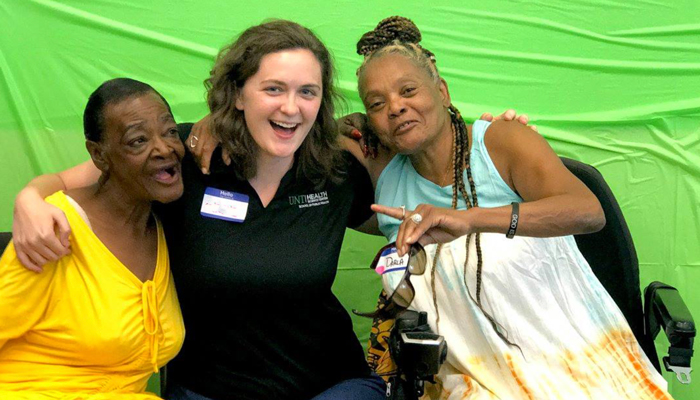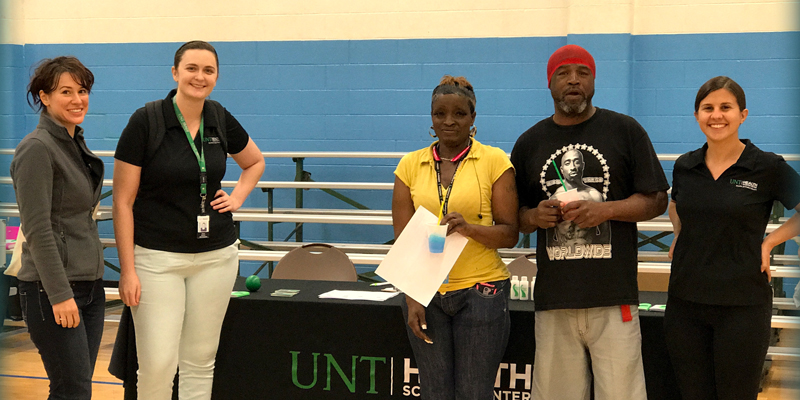A tale of funding, public good and next steps
In 2012, a group of UNTHSC faculty were approached with a unique opportunity. Millions of dollars had suddenly become available through Medicaid to fund innovative health care delivery projects for low-income and uninsured patients. The catch? Funding was performance-based, awarded as successful progress was proven. The Health Science Center could lose money if the projects did not meet their goals.
Dr. Scott Walters, UNTHSC Professor and Chair of Health Behavior and Health Systems in the School of Public Health, was asked to design a project focused on behavioral health.
“This was really unlike a traditional grant where the funder thinks you have a good idea and gives you money to conduct the project,” he said. “Not only did UNTHSC front millions of dollars, but it also had to take the risk that the projects would go well. Nobody had ever seen anything like this before.”
In partnership with Dr. Emily Spence-Almaguer, UNTHSC School of Public Health Associate Professor and Associate Dean for Community Engagement and Health Equity, Dr. Walters’ team designed m.chat, a technology-assisted health coaching program for people residing in permanent supportive housing (PSH) in Fort Worth.
About 75 percent of PSH residents have a chronic health condition. Two thirds have active substance use, and more than half have active mental health symptoms. PSH residents tend to have substantially higher health care costs compared to the general population.
The m.chat program matched PSH residents with a health coach, who met with them monthly over 18 months to set goals around diet, exercise, substance use, medication compliance and other areas. The program’s special software and system for reminders helped clients stay motivated and track progress along the way.

The project enrolled 653 clients over four years. Most people chose to work on diet (62 percent) and exercise (60 percent). About 41 percent wanted to make changes in substance use, and 26 percent wanted to improve their level of social support.
The pace of the project and performance-based reimbursement pushed the team to constantly adapt to new challenges.
“In our first year, part of the funding was tied to enrolling 300 people fitting a certain profile. In a typical project, if you are meeting 80 or 90 percent of your goal, that’s a success. Under the Waiver mechanism, though, we were required to meet the full 100 percent,” Dr. Walters said.
Despite many barriers to improving health, people who participated in m.chat showed substantial improvements: over 12 months, 23 percent increased their fruit and vegetable intake, 40 percent decreased sweet intake, and 49 percent decreased fat intake.
People who set a goal to improve physical activity had far less sitting time and far more activity over 12 months, nearly doubling their number of active minutes per week.
Depression scores went down by one-third, and more than one-third of substance abusers quit.
“The unique impact of m.chat was in the way it addressed a broad range of behaviors affecting people’s health,” Dr. Walters said. “We demonstrated that people can improve their overall health, sometimes in more than one area, despite very difficult circumstances.”
From a funding standpoint, the project was also a success, fully meeting its metrics each year. Projects like m.chat demonstrate UNTHSC’s ability to innovate quickly in response to a unique funding mechanism, resulting in win-win situations for the university and the community.





Social media